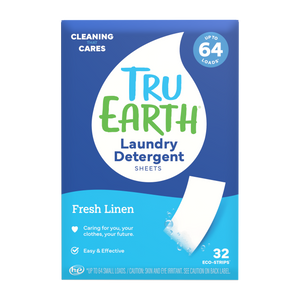As the days become warmer and longer, homeowners nationwide brace themselves for an onslaught of insects and pests. With our insect-friendly environment, it can feel like a constant battle to keep these pests away from our property or away from the inside of our homes.
Unfortunately, many people face the temptation to use powerful chemical pesticides as a quick fix for their infestations. However, using such dangerous chemical treatments in and around your home is not advisable, especially when safer and more effective alternatives exist.
Eco-friendly pest management techniques are better for your health and can be far more successful in eliminating your pest problem once and for all.

Negative Environmental Impacts of Pest Control
Pesticide use has devastating effects on our environment and its inhabitants. Not only do they persist in the environment for extended periods of time, but their presence often spreads beyond the intended area of application.
For example, once released into the air, pesticides can travel with prevailing winds over vast expanses of land before eventually settling in new areas, where they proceed to contaminate soil and water supplies.
Other wildlife species have also been affected by this; research suggests that some insecticides have taken a heavy toll on butterflies and hummingbirds, while herbicides have impaired lizard populations and caused smaller mammals to become sick or die.
Health Risks Associated With Exposure
Chronic pesticide exposure is not only lethal, but it is also incredibly dangerous to our health. Not only can it cause serious and long-term illnesses such as cancer, birth defects, genetic changes, blood disorders, and nerve disorders, it can also lead to more immediate issues such as headaches, skin and eye irritation, and dizziness.
According to the World Health Organization’s estimates, 3 million cases of pesticide poisoning occur each year, resulting in up to 220,000 deaths (mostly in developing countries). This clearly demonstrates how hazardous even small doses of exposure can be.
Benefits of Eco-Friendly Pest Control
Eco-friendly pest control offers numerous benefits beyond just your family's safety. By using organic and natural methods to control pests, you can reduce risk to your health, help the environment, and protect beneficial insects in your yard.

Long-Term Environmental Benefits
Eco-friendly pest control methods are a great way to solve pest problems without causing harm to the environment. These techniques involve using natural elements such as beneficial insects and plants, as well as exclusion barriers, traps, and physical removal to rid an area of pests.
In addition, many eco-friendly methods rely on preventative measures, such as sanitation and habitat modification, to reduce the likelihood of future infestations. The benefits of these eco-friendly techniques are numerous: they're cost-effective; they don't require hazardous chemicals that can cause harm to humans or animals; and because pests don't develop immunity to natural elements, treatments are often more effective in the long run.
Furthermore, since many eco-friendly techniques focus on prevention rather than eradication, they tend to have a lower environmental impact than chemical solutions. All in all, eco-friendly pest control is a safe and effective way to keep pests at bay without damaging the environment.
Won’t Damage Landscaping
Traditional pest control methods that rely on harsh chemicals can have a devastating and long-lasting impact on your landscape. These chemicals need to be repeatedly sprayed every month or so, and they can cause plants, such as grass and bushes, to succumb to wilting, disease, and even death.
As the chemicals seep into the soil, they form lingering toxins that can prevent the regrowth of vegetation - making it difficult for plants to thrive in a chemical-ridden environment. Additionally, the noxious fumes from these toxic substances pose serious health risks, increasing the chances of respiratory ailments and other related illnesses.
All in all, opting for more natural pest control options is often the best solution for preserving your physical health as well as keeping your property green and healthy.
Doesn’t Harm Helpful Insects or Pets
When it comes to pest control, eco-friendly methods have become increasingly popular. Unlike traditional chemical-based treatments, these safer approaches focus on targeting specific pests while leaving beneficial insects alone.
This is especially important for pet owners because it eliminates the potential of their furry friends ingesting or coming into contact with harsh and potentially deadly chemicals.
Additionally, using eco-friendly pest control helps preserve the natural environment by avoiding collateral damage to other species in the area. This is beneficial for both your home and the surrounding ecosystem; without having to resort to toxic pesticides, both can thrive in harmony.
Taking an eco-friendly approach to pest control also helps reduce further spread of invasive species, as they are more susceptible to natural measures rather than harsh chemical treatments.

No Strong Smell Following Application
Conventional cleaning products often leave an unpleasant smell in the air that can take quite some time to dissipate. This is not only annoying, but it is also potentially harmful to our health. The scent of these products is composed of a number of toxic chemicals which can become concentrated in the air if used too frequently or in large quantities.
By using eco-friendly methods instead, we can keep our yards and homes smelling fresh and clean without having to worry about inhaling hazardous chemicals.
Get Rid of Pests in a Safer Way, Today!
Taking an eco-friendly approach to pest management is the best way to keep your home safe from harm. Not only is it safer for you, your family, and your pets, but it’s also more effective than using harsh pesticides.
By following natural practices such as cleaning up cluttered areas, sealing cracks and crevices in walls, and eliminating sources of food and water for pests, you can ensure that your home remains safe and healthy without harming the environment.

